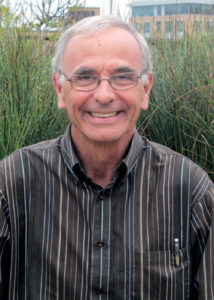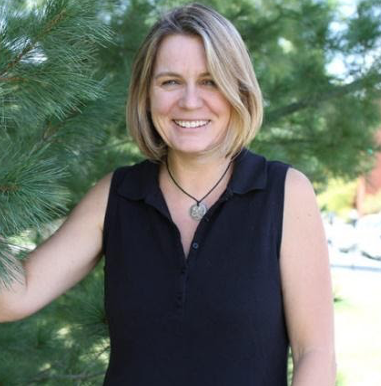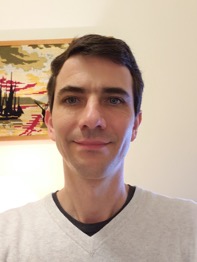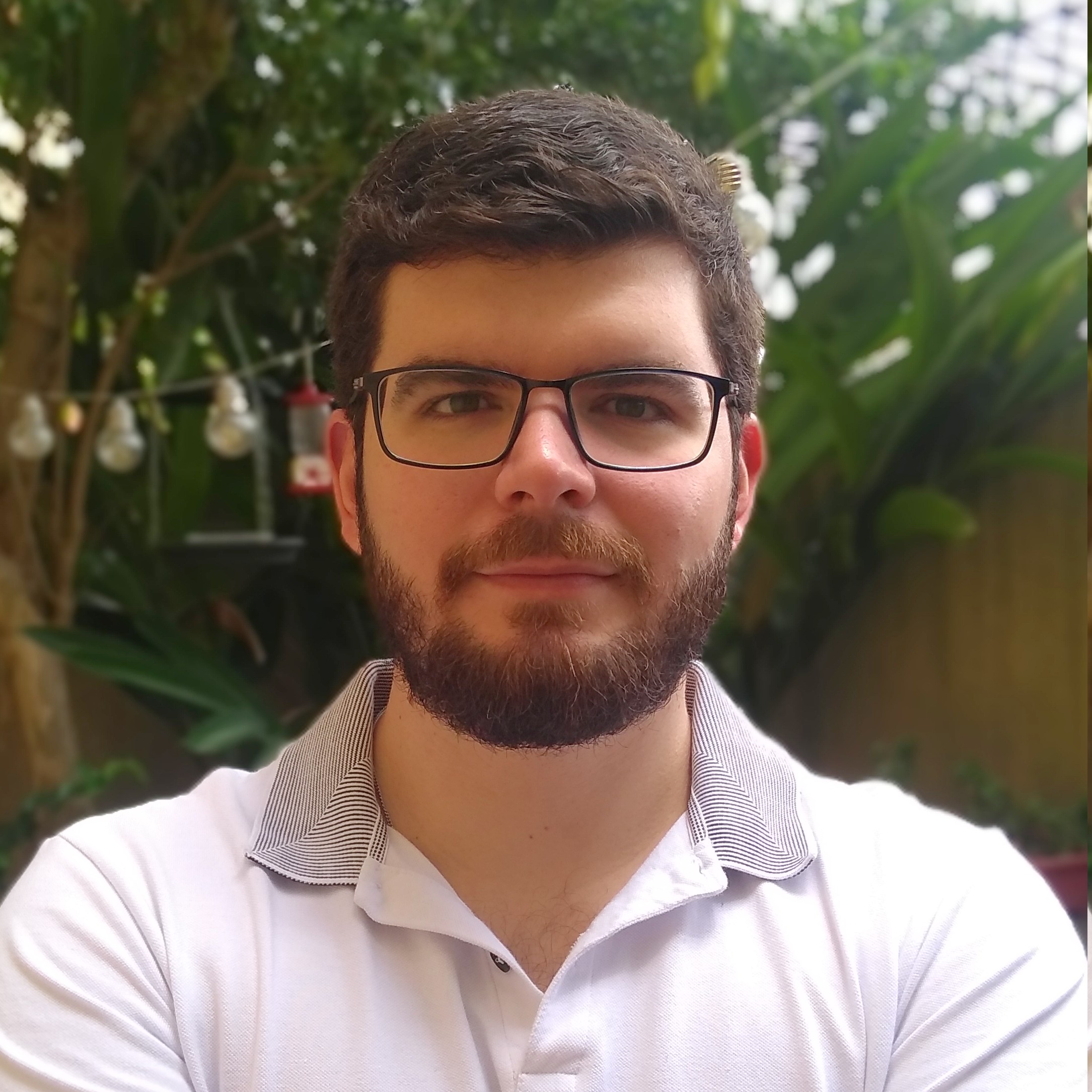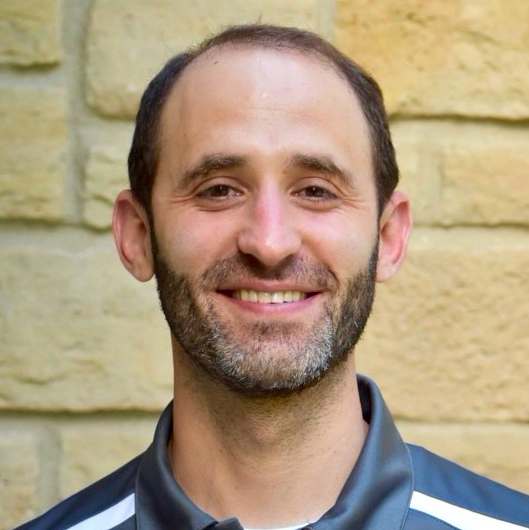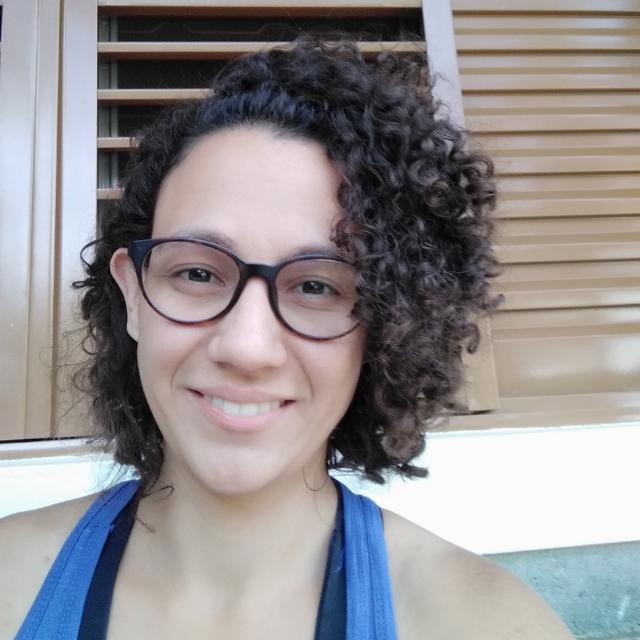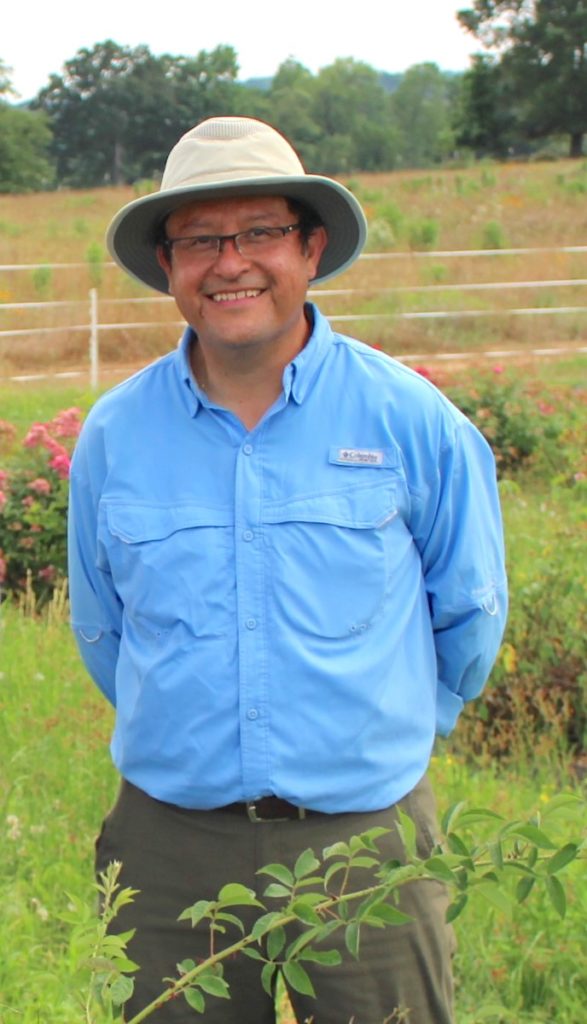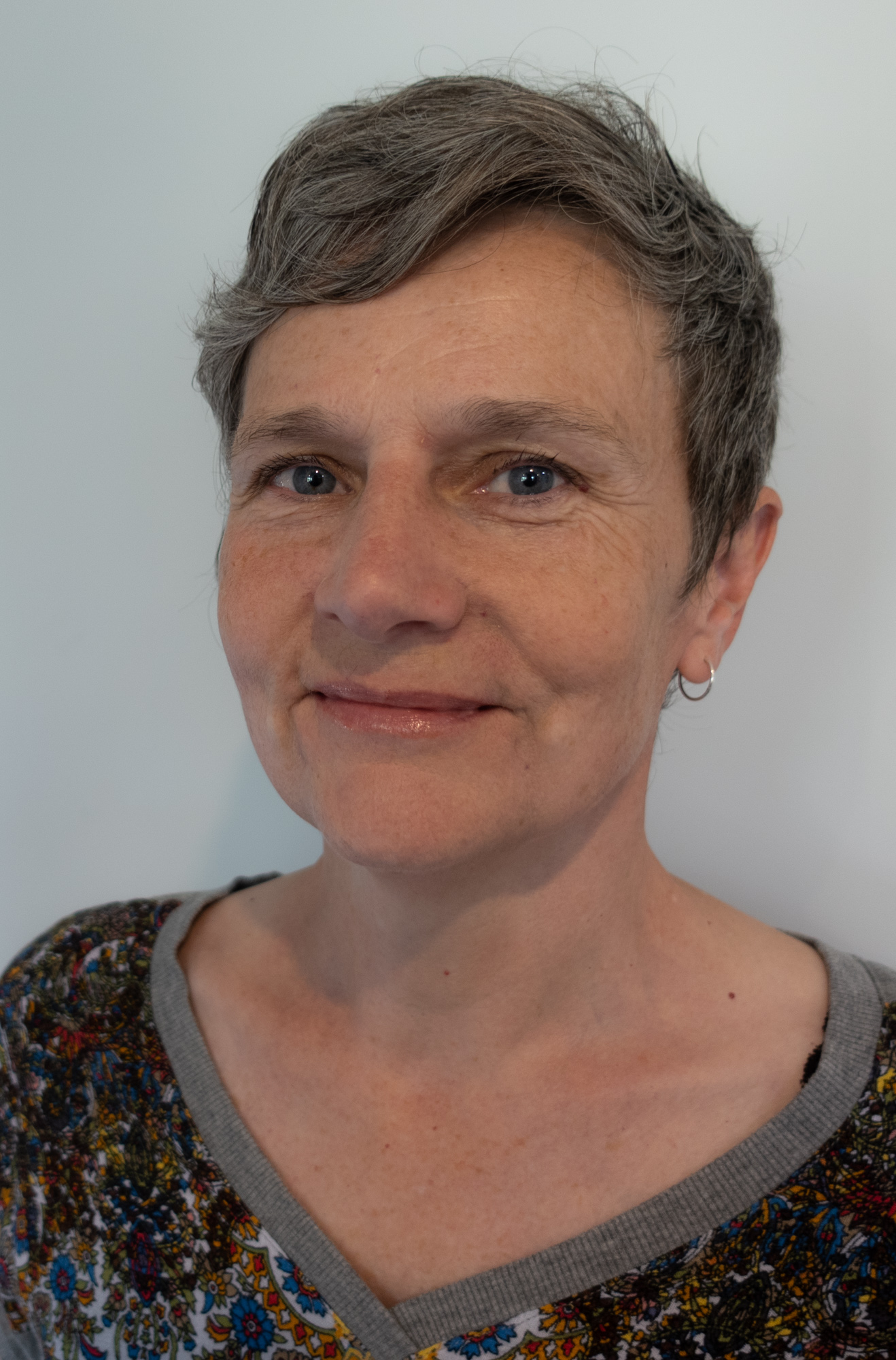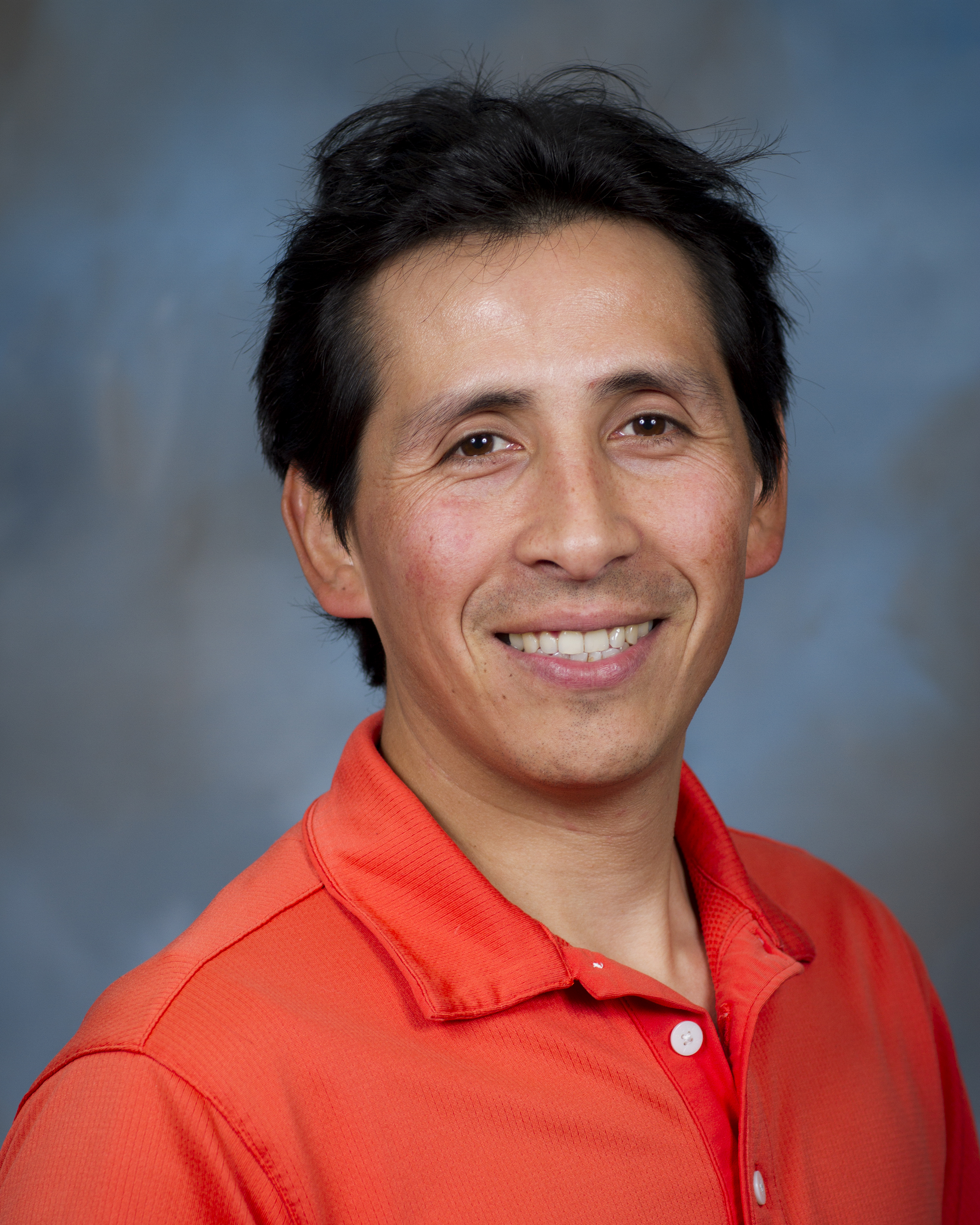Workshop Agenda | Presenters | Links for Software and Programs
Agenda
| January 13 | ||
|---|---|---|
| Time (US Pacific) | Presenter | Topic |
| 8:30 | David Byrne | Introduction |
| 8:45 |
Dorrie Main Delany Baum |
Community Resource website |
| 9:00 |
Peter Bourke Chris Maliepaard Roeland Voorrips |
polymapR and polyqtlR updates |
| 9:50 |
Jibran Tahir Cyril Brendolise |
Genetic Maze for polygenic traits in heterozygous polyploid kiwifruit population |
| 10:05 | Paterne Agre et al. | Identification of QTLs Controlling Resistance to Anthracnose Disease in Water Yam (Dioscorea alata) |
| 10:20 | Break | |
| 10:35 |
Marcelo Mollinari Gabriel Gesteira Cris Taniguti |
MAPpoly and QTLpoly: Use, progress, and case studies |
| 11:30 | Cris Taniguti et al. | Reads2Map: Practical and reproducible workflows to build linkage maps from sequencing data |
| 11:45 | Alejandro Therese Navarro et al. | Smooth Descent: a ploidy-aware algorithm to improve linkage mapping in the presence of genotyping errors |
| 12:00 | Office Hours | Main room - polyqtlR and polymapR |
| 1:00 | Jeff Endelman | New software features for GWAS |
| 1:30 | Mason Chizk et al. | Novel Genomic Resources Enable Association Mapping in Tetraploid Blackberry |
| 1:45 |
Jeekin Lau Cris Taniguti Oscar Riera-Lizarazu David Byrne |
Comparison of polymapR/polyqtlR and MAPpoly/QTLpoly in a tetraploid rose dataset |
| 2:25 |
David Byrne |
Final remarks |
| 2:30 |
"Office Hours" Breakout room #1 - MAPpoly/QTLpoly Breakout room #2 - GWASpoly Main room - Software comparisons |
|
| 3:00 | Poster Session | Check breakout room assignments here |
| 4:00 | Adjourn | |
| January 14 | ||
| Time (US Pacific) | Presenter | Topic |
| 8:30 | David Byrne | Welcome and announcements |
| 8:40 |
Chris Maliepaard Roeland Voorrips Peter Bourke |
Simulation Tools: PedigreeSim and GenoSim |
| 9:45 | Ranjana Bhattacharjee et al. | Harnessing the promising fruits of genomics-assisted breeding in yam improvement |
| 10:00 | Break | |
| 10:10 |
Tim Millar Susan Thomson |
Haplotype assembly using sequencing data |
| 11:10 | Jeff Endelman | Overview of genomic selection |
| 12:00 | Office Hours | Main room - Simulation Tools |
| 1:00 | Jeff Endelman | Genomic selection: potato case study |
| 1:30 | Patricio Munoz | Genomic selection:blueberry case study |
| 2:00 | Olivia Angelin-Bonnet et al. | Investigating genotype-phenotype relationships for tuber bruising in autotetraploid potatoes |
| 2:15 | Nweze Peter et al. | Evaluation of Musa Accessions Indigenous to Benin Republic for Resistance to Black Sigatoka Disease |
| 2:30 | Joao Vitor Nomura et al. | Genome-Wide Association for Drought Tolerance in Potato |
| 2:45 | David Byrne |
Final remarks and announcements |
| 3:00 |
"Office Hours" Breakout room #1 - Haplotype Assembly Breakout room #2 - Stagewise |
|
| 4:00 | Adjourn |
Presenter Information
|
Dr. David Byrne (PD), the Basye Endowed Chair in Rose Genetics, and a Professor in Horticultural Sciences at Texas A&M University. He works internationally in Prunus and Rosa breeding and genetics. He led the SCRI Combating Rose Rosette Disease project, worked with the SCRI RosBREED 2 project, and currently chairs the National Clean Plant Network for Roses. He routinely works with numerous scientists, private breeding programs, ornamental nurseries, marketers, and producers as well as ornamental hobbyist groups. He has, in collaboration with Dr. Klein, developed a GBS pipeline for Rosa, created high density rose maps, and is working with Dr. Riera-Lizarazu to incorporate genomic approaches (MAB, GWAS, GS) into the rose breeding program to enhance disease resistance (RRD, black spot, cercospora), flower productivity, and horticultural quality of roses. Over the past decade, he has mentored 18 graduate students, published 37 refereed and 27 non refereed publications, has given about 140 talks, and released 23 Prunus and 6 Rosa cultivars. He reaches out to the rose community via Facebook and with Rose Updates. He is the Project Director and will coordinate the training aspects of the project and work with Drs. Riera-Lizarazu and Klein on the validation of the computational tools on multiple rose datasets. He will discuss the unique challenges of the polyploid crop breeding community and summarize survey results on the status of genomics-assisted breeding among our community. |
|
Delany Baum, Project Coordinator: Delany graduated from the University of North Texas in 2020 with a Master of Science degree in Environmental Science. She has a background in environmental education and has conducted research in the fields of plant physiology, ethnobotany, and ecology. Delany is the project coordinator for the Tools for Polyploids project and oversees the project's social media pages and website. |
|
Dr. Dorrie Main is a Professor of Bioinformatics in the Department of Horticulture at Washington State University. She runs a highly collaborative, multi-disciplinary research program that has been funded through public (NSF, USDA) and industry (cotton, tree fruit, and legume) sources. The research develops database resources for specific crops (e.g., Genome Database for Rosaceae, CottonGen, Citrus Genome Database, Cool Season Food Legume Database, Genome Database for Vaccinium), online computational tools (e.g. GenSAS), sequence analysis pipelines (e.g. RefTrans), and generic database platforms (e.g. Tripal). The lab also identifies genomic regions and markers controlling important traits and studies genome evolution (e.g. synteny analysis in horticultural crops). All of these efforts seek to provide genomic, genetic, and breeding resources to enable basic, translational, and applied research. They are active members of the AgBioData Consortium and host the AgBioData website. |
|
Originally with a background in physics and pure mathematics (UCC Cork, Ireland), Dr. Peter Bourke has also trained in horticulture and permaculture design. He worked for over four years in vegetable seed production and genetic resource conservation with the Irish Seed Savers Association, Ireland. Peter gained a Master of Science degree in Plant Sciences from Wageningen University & Research in the Netherlands and continued with doctoral research into polyploid quantitative genetics and mapping under the guidance of Prof. Dr. Richard G.F. Visser, Dr. Chris Maliepaard, and Dr. Roeland E. Voorrips. He graduated in 2018 and now works as a researcher and lecturer in the Plant Breeding group in Wageningen. |
|
Dr. Chris Maliepaard joined Wageningen University – Plant Breeding in 2007. He is currently associate professor and research group leader of a group working on ‘Quantitative Aspects of Plant Breeding’. He carries out research projects about mapping, QTL analysis and marker-assisted selection, mostly related to polyploid crops; other research focuses on prediction of phenotypic traits from ~omics data sets. His line of expertise is on plant breeding, quantitative genetics, statistics and quantitative analysis aspects of systems biology and bioinformatics. He teaches about these topics in several MSc, PhD and international courses. In an earlier phase in his career, Chris was employed at the quantitative genetics and statistics group at Biometris, Wageningen, working on statistical analysis of large data sets, and he did consultancy of breeding companies on statistical and quantitative genetics topics. |
|
Dr. Roeland Voorrips is a senior researcher at Wageningen Research – Plant Breeding. After his study Plant Breeding at Wageningen University he was employed at a vegetable seed company before joining Wageningen Research in 1986. He has studied disease and pest resistance in many vegetable crops, and he has been working on quantitative and population genetics methods, including linkage and QTL mapping. Since 2010, he became involved in the development of genetic tools for polyploid crops. He has published several genetics software packages, including MapChart, Pedimap, PediHaplotyper, fitTetra / fitPoly and PedigreeSim, and contributed to others including joinmap and polymapR. |
|
Dr. Marcelo Mollinari is a Senior Research Scholar at North Carolina State University working with the genetics of complex polyploids. He is the creator and maintainer of the R package MAPpoly, which will be one of the topics of the Tools for Genomics-Assisted Breeding in Polyploids Training Workshop. Marcelo also co-created OneMap, an R package for linkage mapping in outcrossing species. In 2008, Marcelo started working on the genetics of polyploids at the University of São Paulo, Brazil. He published works on assessing dosage-based markers in sugarcane and assisted the development of the software SuperMASSA. In 2014, he was a Visitor Researcher at Purdue University where he continued his studies on genetic linkage in polyploids, with particular focus on high-level ploidy species. In 2016, he started to work on the Genomic Tools for Sweetpotato Improvement project, being responsible for the genetic mapping of several biparental hexaploid sweetpotato populations. During that project, he implemented MAPpoly and built three ultra-dense multilocus genetic maps with the reconstruction of the full haplotypes of the parents and offsprings. The resulting maps served as the basis to study the inheritance patterns and meiotic behavior of sweetpotato as well as QTL and genomic selection. He also consults with researchers from several other polyploid species, such as potato, forage crops, kiwifruit, and strawberry. To check Marcelo's work, computer codes, datasets, and presentations, please visit his GitHub page at https://github.com/mmollina. |
|
Dr. Gabriel Gesteira is a postdoctoral research scientist at North Carolina State University (NCSU). He has a Ph.D. in Plant Breeding and Genetics from the “Luiz de Queiroz” College of Agriculture, University of São Paulo (ESALQ/USP), and is the current maintainer of QTLpoly, an R package for QTL mapping in autopolyploids. His current work focuses on the development of computational tools and their application for linkage analysis, QTL mapping, and genomic prediction in polyploid species. Gabriel's interests involve polyploidy, plant breeding, quantitative genetics, statistical genetics, and programming. |
|
Dr. Jeffrey Endelman is an Associate Professor at the University of Wisconsin–Madison and leads the university potato breeding program. He is a co-developer of 16 potato varieties and several software packages for genomics-assisted breeding, including rrBLUP, GWASpoly, polyBreedR, and diaQTL. Endelman has co-authored 35 publications and served on the graduate thesis committees of 26 students. He is a member of the editorial boards for Genetics, Theoretical and Applied Genetics, and The Plant Genome. |
|
Dr. Jeekin Lauis a postdoctoral research associate at Texas A&M University. Jeekin currently works on utilizing and comparing available genetic tools for tetraploid roses. He has experience using tetraploid SNP-array-based genotyping, genotype calling, linkage mapping, and QTL mapping for disease and horticultural traits. Jeekin will be helping attendees with the SCRI Polyploid Computing Support Group. |
|
Dr. Cristiane Taniguti font-Arial; white-space:pre-wrap">is a post-doctoral research associate in the Department of Horticultural Sciences at Texas A&M University. Her current work focuses on the development of bioinformatics workflows to perform SNP and dosage identifications comparing software efficiency. She also develops the VIEWpoly app, a graphical environment to evaluate linkage map and QTL analysis results. She is the current maintainer of OneMap, an R package to build linkage maps in F1 diploid outcrossing populations. Cris will be helping attendees with the SCRI Polyploid Computing Support Group. |
|
Dr. Oscar Riera-Lizarazu, Co-Director: Dr. Riera-Lizarazu is an Associate Professor in the Department of Horticultural Sciences at Texas A&M University, in College Station, TX, USA. Dr. Riera-Lizarazu works on rose genetics and breeding with the goal of developing, testing, and releasing improved varieties of roses with regional and national adaptation as well as conducting research on the use of genomics-based tools for rose variety development and understanding the genetic basis of traits in Rosa and related horticultural crops. Dr. Riera-Lizarazu has over 20 years of national and international research experience on plant genetics, cytogenetics, and breeding. Prior to his assignment at Texas A&M, Dr. Riera-Lizarazu held various senior-level positions in the private sector such as Global Wheat and Sorghum Breeding Leader at Dow AgroSciences and the North America (NA) Regional Crops’ Technology Leader at Corteva Agriscience, the Agricultural Division of DowDuPont. Prior to working in the private sector, Dr. Riera-Lizarazu served internationally in director-level positions at the Int. Crops Research Institute for the Semi-Arid Tropics (ICRISAT) in India and as a tenured faculty in the Department of Crop and Soil Science at Oregon State University, USA. Dr. Riera-Lizarazu has also held research scientist positions at the International Wheat and Maize Improvement Center (CIMMYT) in Mexico and the Bolivian Institute of Agricultural Technology (IBTA), Bolivia. Oscar Riera-Lizarazu received B.S. and M.S. degrees in Plant Science from the Utah State University and a Ph.D. in Plant Breeding and Genetics from the University of Minnesota, USA. |
|
Tim Millar is a member of the Bioinformatics team at Plant and Food Research and a Ph.D. student at Otago University, New Zealand. His interests include statistical genetics, Bayesian statistics, and software development. His Ph.D. topic is on identifying selective sweeps in a mixed-ploidy Kiwifruit (Actinidia spp.) breeding program. |
|
Dr. Susan Thomson is a senior Bioinformatician and researcher at The New Zealand Institute for Plant & Food Research (PFR). Susan started her plant research life as a member of the PFR team involved in the International Potato Genome Sequencing Consortium that published the potato genome and high-density linkage map. She then moved into the field of Bioinformatics to continue the analysis of genomic and genetic data from several polyploid crop species including potato, kiwifruit, and blueberry. She is now part of a team that is focused on the application of sequence-based genotyping and haplotyping to polyploid breeding material as well as investigating the genomics and genetics of inter-specific polyploid hybrids. |
|
Dr. Patricio Munoz is an associate professor leading the blueberry breeding and genomics program at the University of Florida Horticultural Science Department www.blueberrybreeding.com. He obtained his M.Sc. in quantitative genetics and Ph.D. in Molecular Breeding at the University of Florida. He then led the Forage breeding and genomic program at the University of Florida Agronomy Department before moving to his current position. His research consists in the improvement of cultivars with a local focus but a global impact, and in developing and implementing genomic tools to accelerate the breeding process with a focus on outcrossing polyploid species. He has released or collaborated for the release of 10 blueberry cultivars, 4 forage cultivars, and 7 turfgrass cultivars. He also led the development of one phone App for helping growers with scouting blueberry pests and diseases, as well as to obtain details of blueberry cultivars (UF/IFAS Blueberry Growers App). Currently, he is working to develop low chilling requirement blueberries with better flavor, sensorial and nutraceutical traits to enhance the consumption of blueberries while still working on traditional crop traits that help producers stay competitive. |
Links to Softwares and Programs
- PedigreeSim: https://github.com/PBR/
pedigreeSim/tree/master/ compiled - MAPpoly: https://github.com/mmollina/SCRI
- R-universe: links to datasets, installation information, etc. for all R packages: https://polyploids.r-universe.dev/ui#builds

